The Multi-Hazards Program formed an international core group that comprises representatives from APRU universities, other multi-hazards related institutions, the APRU secretariat member and the MH Program Coordinator. The Core Group is responsible for making the plan and strategy of the activities under the MH Program and reviewing its progress against the overall aim and specific objectives as detailed within the 3-year Plan.
Their responsibilities include:

- Developing the work plan and strategy

- Contributing to the review of progress against the planned outcomes

- Advocating widely the activities of the Program and APRU at international and regional events to create awareness on the Program and APRU
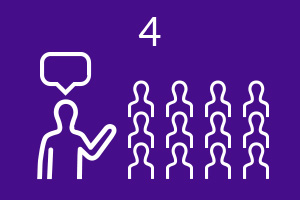
- Providing technical assistance to the university that will organize the annual symposium of the Program If requested
The Core Group Members

- Prof. Yuichi Ono
- IRIDeS, Tohoku University / Chairperson of the MH Program Core Group
Yuichi Ono is a Professor, the International Research Institute of Disaster Science (IRIDeS) at Tohoku University, Japan. Yuichi received a Ph.D. in Geography (Climatology and Hazard) at Kent State University, Ohio, U.S.A. in 2001. He conducted research in tornado disaster risk reduction in the U.S.A., Japan, and Bangladesh. During 2002-03, he worked for the World Meteorological Organization (WMO in Geneva) and contributed to developing the disaster risk reduction programme and emergency response mechanism when hydrometeorological disasters occur in the WMO’s member countries. During 2003-09, he worked for the United Nations International Strategy for Disaster Reduction (ISDR in Geneva and Bonn) to assist developing the International Early Warning Programme and helped manage the ISDR Scientific and Technical Committee.
During 2009-12, he worked for the United Nations Economic and Social Commission for Asia and Pacific (ESCAP in Bangkok) as a chief of the Disaster Risk Reduction Section, providing a regional platform for cooperation and policy-making for disaster risk reduction, with particular attention to developing countries and vulnerable social groups. ESCAP has an intergovernmental process in disaster risk reduction with its 62 member countries. In November, 2012, he became a professor of the International Research Institute of Disaster Science, Tohoku University, located in Sendai, Japan.
More
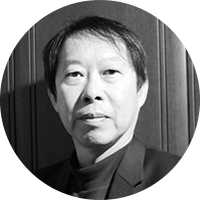
- Prof. Osamu Murao
- IRIDeS, Tohoku University / Chairperson of the MH Program Core Group
Dr. Osamu Murao is a professor at the International Research Institute of Disaster Science (IRIDeS) at Tohoku University, which was established in order to disseminate learning from the 2011 East Japan Earthquake and Tsunami Disaster, and the founder of the International Strategy for Disaster Mitigation Laboratory (ISDM). Together with collaborating organizations from many countries and with broad areas of specializations, the IRIDeS conducts world-leading research on natural disaster science and disaster mitigation. In order to be in charge of ISDM in Regional and Urban Reconstruction Research Division, Dr. Murao was transferred to IRIDeS from Faculty of Engineering, Information and Systems at the University of Tsukuba in April 2013.
His current researches focus on post-disaster recovery process and urban design, and the relationship between physical environment (architecture and urban design) and disaster. To date, with research grants by Ministry of Education, Culture, Sports, Science and Technology of Japan, and other organizations, he has investigated the post-disaster recovery process for damaged areas in Taiwan, Turkey, Sri Lanka, Thailand, Indonesia, Peru, Philippines, and World Trade Center in New York, as well as the 2011 Great East Japan Earthquake. Particularly he kept tracking the recovery process of Chi-Chi Township since the 1999 Chi-Chi earthquake in Taiwan as a visiting researcher of National Taiwan University in 2005. Dr. Murao has been involved in some research projects about post-disaster urban recovery and disaster risk reduction in the world.
More
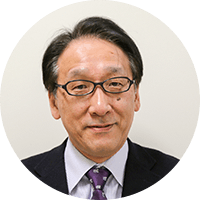
- Prof. Fumihiko Imamura
- Director of IRIDeS, Tohoku University
Fumihiko Imamura is a Professor of Tsunami Engineering and director of the International Research Institute of Disaster Science, Tohoku University. He joined the IRIDeS in April 2012 as vice director after the director of Disaster Control Research Center, Graduate School of Engineering, Tohoku University in 2010-2012.
He is an expert on tsunami modeling, mitigation planning and education/awareness. He has conducted field surveys as leader for earthquakes and tsunamis damage investigation since the 1992 Nicaragua and Flores Island in Indonesia. And he is a secretary, international TIME-project (Tsunami Inundation Modeling Exchange) supported by IOC and IUGG Tsunami commission.
Since the 2011 Tohoku earthquake tsunami caused the several damage and raised the issues to be improved, he has restarted the research field of tsunami engineering with many experiences and lessons in the recent tsunamis in order to reduce the damage.
More
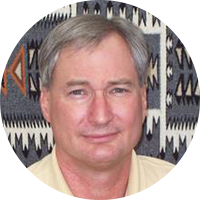
- Prof. John Rundle
- University of California, Department of Physics, Davis, CA. Also, Open Hazards Group, Davis, CA
Co-Founder of Open Hazards Group and Chair of the Board.
Distinguished Professor of Physics and Geology, University of California, Davis.
John currently serves as Executive Director of the APEC Cooperation for Earthquake Simulations (ACES: http://quakes.earth.uq.edu.au).
Senior Advisor, APRU and APRU Multihazards Hub, Tohoku University, Sendai, Japan.
John was a Visiting Associate at the California Institute of Technology (1980-1982) at the Caltech Seismological Laboratory. He was also a Member (1990 – 1997) and Chair (1994-1996) of the scientific Advisory Council to the Southern California Earthquake Center. He is currently a Distinguished Visiting Scientist at the Jet Propulsion Laboratory, Pasadena, CA (1995-present), an External Professor at the Santa Fe Institute, and a Fellow of both the American Physical Society (2005) and the American Geophysical Union (2008).
Recently, he was a co-winner of the NASA Software of the Year Award (2012). John received his B.S.E from Princeton University (Magna Cum Laude, Phi Beta Kappa, Tau Beta Pi), and M.S. (1973) and Ph.D. (1976) from the University of California at Los Angeles. In addition to natural hazards and earthquakes, he also has professional interests in forecasting, validation of forecasts, and quantitative finance. He currently co-organizes (along with Michael Maouboussin, Chris Wood and Martin Lebowitz) a yearly meeting on risk for the Santa Fe Institute, often held at Morgan Stanley, Inc., in New York. He teaches courses in Risk and Natural Disasters; Complex Systems; and Econophysics and Quantitative Finance at the University of California, Davis.
More
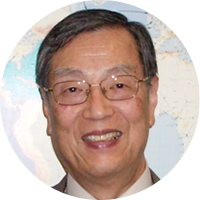
- Prof. Kuniyoshi Takeuchi
- International Center for Water Hazard and Risk Management under the auspices of UNESCO (ICHARM)
Kuniyoshi Takeuchi is Advisor of International Centre for Water Hazard and Risk Management under the auspices of UNESCO (ICHARM), Tsukuba, Japan and Professor Emeritus of Yamanashi University in Kofu. He served as the Founding Director of ICHARM from March 2006 to September 2014. He was a professor of Department of Civil and Environmental Engineering in Yamanashi University for 30 years till March 2007. He got his BS (1966), MS (1968) and Dr.Eng. (1982) in civil engineering at University of Tokyo, and Ph.D. (1972) in city and regional planning at University of North Carolina at Chapel Hill. His major field is hydrology and water resource systems. Interest includes reservoir operation, hydrological statistics, stochastic hydrology, distributed hydrological modeling, lake hydrology, radar and satellite hydrology etc. He served as a principal investigator of various hydrological research projects including those of the Mekong River and the Yellow River Basins.
Currently he is involved in water-related disaster management, risk assessment, hydrological simulation for early warning and impact assessment of climate change on water-related disasters. He has been serving as the chair of the IUGG (International Union of Geodesy and Geophysics) GeoRisk Commission (Commission on Geophysical Risk and Sustainability) since 2007 and a vice-chair of IRDR (Integrated Research on Disaster Risk) Science Committee since 2009. He served as the chairperson of UNESCO IHP (International Hydrological Program) Inter-Governmental Council for 1998-2000 and IAHS (International Association of Hydrological Sciences) President for 2001-2005. He is a recipient of IAHS-UNESCO-WMO International Hydrology Prize (2012).
More
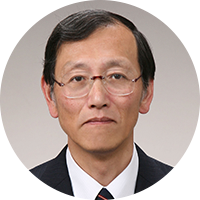
- Prof. Teruyuki Kato
- Tokyo University
Major research projects in our laboratory are to apply space geodetic techniques, especially the Global Positioning System (GPS), to measure crustal deformations of the earth’s surface and the data analyses for help understand crustal dynamics and develop a system for forecasting crustal activity. We have used GPS technology to the following research projects; (1) We have established a permanent dense GPS array in the Tokai area to delineate detailed crustal deformation in the area where a large earthquake is expected to occur in the near future, (2) Numerical simulation of GPS data using nationwide GPS array (GEONET) that is operated by the Geographical Survey Institute, and (3) Collaborative research on tectonics in the plate convergent areas in other parts of the world such as Indonesia and India.
In addition to these challenging studies, we are also tackling basic but creative researches such as; (1) development of GPS buoy system for monitoring tsunami, (2) application of high-rate kinematic GPS for examining if GPS can be used as seismometer, and (3) application of GPS to meteorology and ocean-bottom crustal deformation. Many of these studies are being conducted as multi-institutional cooperative projects.
- Education:
-
- March 1975 B. A. Geophysics, Faculty of Science, University of Tokyo
- March 1977 M. Sc. Geophysics, Faculty of Science, University of Tokyo
- March 1980 D. Sc. Geophysics, University of Tokyo
- Major Research Theme:
-
- Tectonics in eastern Asia and western Pacific based on GPS observations
- Stress and strain change over Japanese Islands deduced from GPS nationwide array
- Source mechanism of earthquakes based on GPS observations
- Mechanism of slow slip along the subducting plate using GPS data
More
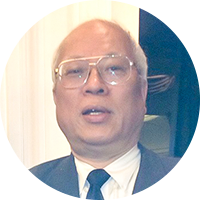
- Prof. Yih Chi Tan
- National Taiwan University
My researches related to earthquake to analyze the groundwater level changed with analytical solution and observed data to be verified to published at Water Resources Research. Furthermore, the national policy of watershed management and Flood mitigation after the 921 Chi-Chi Earthquake in Taiwan is published on Natural Hazards. We have had Hybrid neural networks in rainfall -inundation forecasting based on a synthetic potential inundation database is published at Natural Hazards and Earth System Sciences.
My research has focused on flow in porous medium, land subsidence and disasters reduction. I am working on the porous media flow and land subsidence for over 30 years, and it has been applied for vegetated slope stability model combined the root system model. In addition, the hydrogeological parameter estimation in heterogeneous and anisotropic aquifer is well developed.
- Employment History:
-
- 2011~ , Director, Center for Weather Climate and Disaster Research
- 2010~ 2011 CEO, Center for Weather Climate and Disaster Research
- 2007-2009 Director, Disaster Research Center, National Taiwan University
- 2003-2009 Director, Hydrotech Research Institute, National Taiwan University
- 2003/2-2003/5-Visiting Scholar, Civil and Environmental Engineering, UCLA
- 2002- Professor, Bioenvironmental Systems Eng., National Taiwan University
- 1994-2002, Professor, Agricultural Engineering, National Taiwan University
- 1988-1994, Associate Professor, Agricultural Eng., National Taiwan University
- 1985-1988, Study Ph.D. program at Cornell University
- 1982-1985, Instructor, Agricultural Engineering, National Taiwan University
- Professional Career Highlights:
-
- Professor and Director, National Taiwan University
- Vice Chairman- ICID- Working Grouping of Environmental Impact of Irrigation, Drainage and Flood Control
- National Correspondents of the IAHS Association, IUGG- Chinese Taipei Committee
- Secretary General, ICID-Chinese Taipei Committee
- Chairman, Taiwan Rainwater Catchments
More
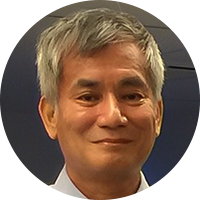
- Prof. Hung-Chi Kuo
- National Taiwan University
Hung-Chi Kuo received his Ph.D. degree from the Department of Atmospheric Science, Colorado State University in 1987. He worked at Naval Research Laboratory from 1988 to 1990. He joined National Taiwan University (NTU) in 1990. He was a Visiting Professor of University of California at Los Angeles in 1994. He lectured at Purdue University in 2002-2003. He was the Vice President for Academic Affairs, NTU in 2016-2018. He is currently the Chair Professor with the Department of Atmospheric Sciences, NTU. He is a fellow of Meteorological Society of Republic of China. His research interest is in atmospheric dynamics, tropical cyclone, and mathematical modeling. He is the author and co-author of 70 publications with more than two thousand citations.
He is the recipient of the prestigious awards of the National Chair Professor from Taiwan Ministry of Education in 2007, and of the Merit Research Fellow Award from Taiwan Ministry of Science and Technology in 2015.
More
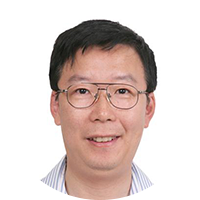
- Prof. Hui Zhang
- Tsinghua University
Prof. Hui Zhang is vice director of Institute of Public Safety Research in Tsinghua University, Beijing, China. He is vice chairman of Chinese Public Safety Association, a member of ISO/TC223 (societal security) and is currently in charge of establishing ISO standard on “emergency capability assessment” (ISO 22325). He is a core member of APRU (Asia-Pacific Ring University) Multi-hazard Group. He has conducted several national important projects, such as framework design of national Emergency Response Platform (ERP) System; software and database system development for emergency response system; integrated prediction and early warning system for national ERP; emergency response system. Prof. Zhang is the PI of a key research program of NSFC focused on “city’s comprehensive risk assessment” and the PI of a major research program of NSFC focused on “scenario-response based emergency management integration platform development”.
Prof. Zhang received the National Science Foundation CAREER Award (USA) in 1999 when he was in SUNY Stony Brook, USA, and Changjiang Scholar (China) in 2008.
Prof. Zhang's recently researches most focused on public safety and emergency management, including preparedness and response to emergencies, decision-making support, applications of social media and big data in emergency management, etc. He has published more than 240 papers including over 100 SCI indexed paper and 180 EI indexed paper.
More
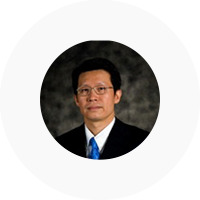
- Prof. Supot Teachavorasinskun
- Chulalongkorn University
The Center of Excellent for Earthquakes and Vibrations, Chulalongkorn University has been established since 1986. At the beginning period, the center aimed mostly on conducting the engineering researches related to earthquakes and vibrations; e.g., seismic analysis and design of reinforced concrete structures, vulnerability study of buildings in low to moderate seismic zones, passive and semi-active control of building vibrations under major distant earthquakes, dynamic and cyclic behavior of soft Bangkok clays, ground response and seismic hazard analysis and etc. Currently, the center has expanded its scopes to cover researches and studies on wider aspects of the disaster risk reduction (DRR). We had initiated and involved in drafting the first national seismic resistant design for Thailand and its later amendment. In 2013, the center was the main organizer for drafting the guidelines for seismic rehabilitation of building which has already been enforced in 2015.
The center has also worked to facilitate the community capacity build-up and public awareness for disaster risk reduction through various student summer activities. We has also promoted the Campus Disaster Safe Program aiming to prepare tools for evaluating the levels of disaster resilience for the university to strengthening the campus in coping with the probable hazards and risks.
More
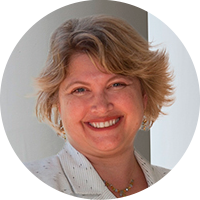
- Prof. Denise Konan
- University of Hawaii at Manoa
Dr. Denise Eby Konan is Dean of the College of Social Sciences and Professor of Economics at the University of Hawai’i at Mānoa (UHM). As Dean, she provides leadership to twelve academic departments that deliver nearly a fifth of degrees offered on campus.
Dr. Konan has long been active in local economic research. She is a Research Fellow at the University of Hawai’i Economic Research Organization (UHERO), where she previously served as the Director of the Energy & Greenhouse Gas Solutions (EGGS) research program, which specialized in issues of energy and greenhouse gas emissions reduction in Hawai’i. She also is the founding Director of the Center for Sustainable Coastal Tourism at the University of Hawai’i Sea Grant College Program. The center promotes respect for the culture, environment, and economy of Hawai’i and other coastal visitor destinations through research, education, and outreach.
A noted international trade economist, Konan has worked extensively in Asia, the Middle East and North Africa. She has been a consultant to the World Bank, the Council of Foreign Relations, the Arab League, and governments of Egypt, Tunisia, Saudi Arabia, and Hawai’i and publishes on issues of regional economic integration, trade in services, intellectual property rights, foreign direct investment and energy.
Konan also serves as the academic lead for the university’s Daniel K. Inouye Center for Democratic Leadership. Currently in the development stage, when complete the center will house academic programs that will advance public awareness of U.S. history and government, public service leadership, democratic ideals and global awareness through visiting and resident experts, communications programs and exhibits, public engagement and educational programs – particularly for K-12, lectures and other civic engagement efforts.
An award winning teacher, Dean Konan is also a Leadership Fellow with Science Education for New Civic Engagement and Responsibility (SENCER) of National Science Foundation, and a board member of the Asia Pacific Disaster Risk Reduction and Resilience (APDR3) Network.
Dr. Konan served for two years as the Interim Chancellor and for three years as the Assistant Vice Chancellor of UHM. She received her undergraduate degree from Goshen College and her doctorate from the University of Colorado.
More
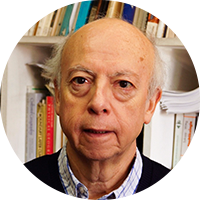
- Prof. Hugo Romero
- University of Chili
Hugo Romero-Aravena (born in Valparaiso, Chile, on April 21st, 1950) is Associated Professor in the Department of Geography in the Faculty of Architecture and Urbanism of University of Chile, institution where he has been working for 46 years. He has been Director of the Millenium Research Center on Disasters and Socionatural Vulnerabilities between 2011 and 2014. His education includes a tittle of Teacher in History and Geography, obtained in University of Chile, a Master of Sciences in Land Resources Management obtained in the National College of Agricultural Engineering, University of Cranfield, U.K. , a Diploma in Geographical Information Systems Applied to the Environment, obtained in the Ecole Polithecnique Federal de Laussane in Switzerland, and a Doctorate in Geography and Land Resources Management obtained in University of Zaragoza, Spain.
He is or has been Visiting Professor in University of Poitiers (France), Extremadura (Spain), Federal Universities of Santa María and Parana (Brazil). and Adjoint Professor in the Washington State University, USA. His research topics are related with Urban and Regional Sustainable Development, Socionatural Disasters, Climate Change and Urban Political Ecology. He is teaching Environmental Geography at graduate level in Master and Doctorate Programs in several Latin American universities. He is author or co-author of near 200 articles and book chapters published in Chile and abroad.
More
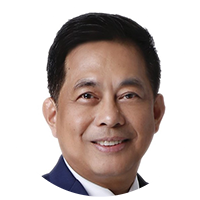
- Prof. Benito M. Pacheco
- Institute of Civil Engineering, University of the Philippines Diliman
Dr. Benito Pacheco is Professor at the Institute of Civil Engineering, University of the Philippines Diliman in Quezon City, Philippines He is also Academician member of the National Academy of Science and Technology (Philippines). Among his recent engagements through the University are national projects to review and replace the Philippine legislation that regulates building design and construction throughout the country, and to update a national framework of prioritization of multi-hazards retrofit of school buildings.
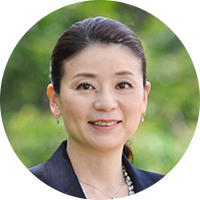
- Dr Takako Izumi
- Associate Professor of IRIDeS, Tohoku University and Program Coordinator of the Multi-Hazards Program
Takako joined Tohoku University in Japan as Associate Professor under the Office of the President (Promotion of international disaster science) and the International Research Institute of Disaster Science (IRIDeS) in April 2013. She also plays a role of Programme Coordinator for APRU-Tohoku University Multi-hazard Programme. She holds a Ph.D. in global environmental study from Kyoto University in Japan. She started her career in humanitarian assistance with the UN Office for the Coordination of Humanitarian Affairs (UNOCHA) and involved in disaster response coordination in various countries in Asia, especially deeply involved in the recovery from the Indian Ocean Tsunami in 2005 with the UN Office for the Recovery Coordinator for Aceh and Nias (UNORC) and the earthquake in Yogyakarta in Indonesia in 2006. She also worked for the UN Office for Disaster Risk Reduction (UNISDR) to contribute to the preparation for the UN World Conference for Disaster Reduction held in Kobe, Japan.
Since 2007, she worked for an international NGO (MERCY Malaysia) based in Malaysia as Head of Disaster Risk Reduction Department and General Manager for Operations. Also, she serves as Advisor for the Asian Disaster Reduction and Response Network (ADRRN) established in 2002 which aims for capacity development of Civil Society Organizations and advocacy for the need of multi-lateral collaboration among various stakeholders.
More

